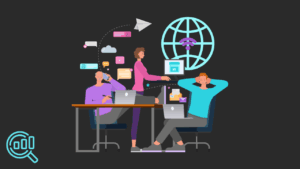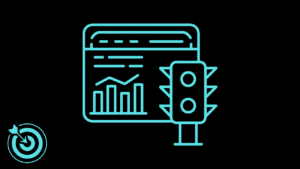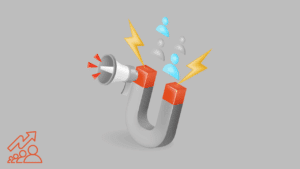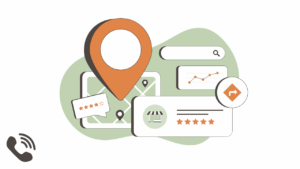Off-page SEO plays a key role in boosting your website’s authority and improving its search rankings. Unlike on-page SEO, which focuses on elements you control on your site, off-page SEO involves everything that happens beyond it—like backlinks, reviews, and social signals. These external signals tell search engines how valuable and trustworthy your site is. In this comprehensive guide, you’ll learn what is off-page SEO and how to use it for building authority and ranking higher.
In this guide, you’ll learn how off-page SEO works, why it matters, and the best techniques to build your website’s reputation online. We’ve also included examples from e-commerce, legal, SaaS, and fitness industries to make the strategies more practical.
What Exactly Is Off-Page SEO?
Off-page SEO refers to all the optimization actions you take outside of your own website to improve its search engine visibility. This includes earning backlinks from other sites, managing online reviews, increasing brand mentions, and engaging on social media.
While on-page SEO helps search engines understand your content, off-page SEO tells them that your content is trusted by others. Think of it as building your website’s reputation across the internet.
Why Off-Page SEO Matters
Google and other search engines use off-site signals to determine how authoritative and relevant your website is. Even if your content is excellent, you’ll struggle to rank if no one’s linking to or mentioning your site.
Good off-page SEO helps:
- Improve your rankings in search engine results
- Increase your site’s domain authority
- Drive referral traffic from other websites
- Build trust with both users and search engines
Without a strong off-page presence, your site may never reach its full ranking potential.
The Role of Backlinks in Off-Page SEO
Backlinks are links from other websites that point to your site. They’re among the most influential ranking factors in SEO. When reputable websites link to yours, it signals to search engines that your content is valuable.
Not all backlinks are equal. A single link from a trusted site can carry more weight than dozens from low-quality pages. Focus on building high-authority backlinks from relevant websites in your niche.
How to Get Quality Backlinks
There are several proven ways to earn quality backlinks:
- Guest blogging: Write articles for reputable blogs in your industry.
- Infographics: Create and share visually engaging infographics that others want to reference.
- Broken link building: Find broken links on other sites and suggest your content as a replacement.
- Digital PR: Share newsworthy updates or unique insights with journalists.
- Linkable assets: Develop in-depth guides or original research that attract natural backlinks.
These methods require time and strategy, but they pay off long-term.
Managing Your Online Reputation
Your brand’s online reputation is another key component of off-page SEO. Potential clients and search engines both consider how others talk about you online. Positive reviews, high ratings, and mentions on third-party sites boost your credibility.
Why Reviews Matter
Online reviews influence trust and visibility. A business with hundreds of 5-star reviews will appear more trustworthy than one with only a few. Google also uses review signals to rank local businesses.
To manage your reputation effectively:
- Ask happy customers to leave reviews.
- Monitor your brand mentions regularly.
- Respond professionally to both positive and negative feedback.
For example, legal firms should focus on platforms like Avvo or Justia, while SaaS products benefit from reviews on G2 or Capterra.
The Power of Social Media for Off-Page SEO
Social signals might not be a direct ranking factor, but they contribute significantly to off-page success. When people share your content, it gains visibility. That visibility can lead to backlinks and branded searches.
Social media also drives direct traffic, encourages brand awareness, and helps build community. All these elements support long-term SEO growth.
Tips for Maximizing Social Impact
- Choose platforms that align with your audience.
- Share useful content consistently.
- Engage with your community through comments and DMs.
- Encourage user-generated content and branded hashtags.
Fitness brands, for instance, can leverage Instagram and TikTok. SaaS companies might focus on LinkedIn and Twitter.
Leveraging Content Marketing Off-Site
Creating high-quality content is vital, but distributing it off your site is just as important. Use external platforms to reach new audiences and build authority.
Options include:
- Republishing on Medium or LinkedIn Articles
- Answering questions on Quora or Reddit
- Hosting webinars or participating in podcasts
- Collaborating with other brands or influencers
These efforts drive visibility and attract backlinks—especially when your insights add genuine value.
Digital PR and Brand Mentions
Digital PR involves promoting your brand through media coverage, interviews, and expert commentary. Even unlinked mentions can boost your brand’s perceived authority.
Journalists and bloggers are always looking for expert insights. By positioning yourself as a reliable source, you increase your chances of being cited—and often linked.
Use tools like HARO (Help a Reporter Out) to find opportunities and pitch relevant stories or quotes.
Industry-Specific Off-Page SEO Examples
Building Authority Ranking Higher E-commerce
An online store can gain backlinks through product reviews, influencer collaborations, or inclusion in gift guides. Social proof, like user photos or video testimonials, also strengthens authority.
Legal Building Authority Ranking Higher
Law firms should focus on earning reviews and getting listed in legal directories. Guest columns, local sponsorships, and community events often result in backlinks and local mentions.
SaaS
Software companies benefit from tech blog features, product comparisons, and customer success stories. High ratings on review platforms also increase visibility and trust.
Fitness Building Authority Ranking Higher
Fitness coaches and brands thrive on influencer marketing and social engagement. Video tutorials, challenges, and collaborations help generate mentions and backlinks.
Tools to Support Off-Page SEO
Using the right tools can streamline your off-page SEO strategy:
- Ahrefs / Semrush: Firstly, analyze backlinks and find new link opportunities.
- Moz: Secondly, monitor domain authority and link metrics.
- BuzzStream: Manage outreach campaigns.
- Google Alerts: Track brand mentions.
- Yext / Moz Local: Finally, Manage local citations.
These platforms help track performance and find new opportunities to grow your authority with out off-page SEO guide.
Off-Page SEO Techniques Comparison Table
| Technique | Difficulty | SEO Impact | Best Use Case |
|---|---|---|---|
| Guest Blogging | Medium | High | Building niche authority and backlinks |
| Social Media Engagement | Low | Medium | Boosting visibility and content shares |
| Influencer Collaborations | Medium | Medium | Driving buzz and third-party endorsements |
| Directory Listings | Low | Medium | Essential for local businesses and reputation |
| Forum Participation | Medium | Medium | Establishing expertise and brand awareness |
| Digital PR | High | High | Earning news coverage and authority backlinks |
| Linkable Assets | Medium | High | Generating organic backlinks through value |
| Online Reviews | Medium | High | Improving local SEO and user trust |
Off-Page SEO Guide Final Thoughts
The Off-page SEO builds the reputation that helps your website rise in search rankings. It’s not just about backlinks—it’s about visibility, trust, and perceived value. Search engines reward sites that others refer to, review positively, and share often.
Start with one or two techniques that fit your industry and scale from there. Over time, consistent off-page efforts will help your content rank higher, attract more visitors, and convert them into loyal customers.
Would you like this guide formatted as a WordPress-ready HTML file, a PDF download, or a .docx document for offline use? Let me know!








